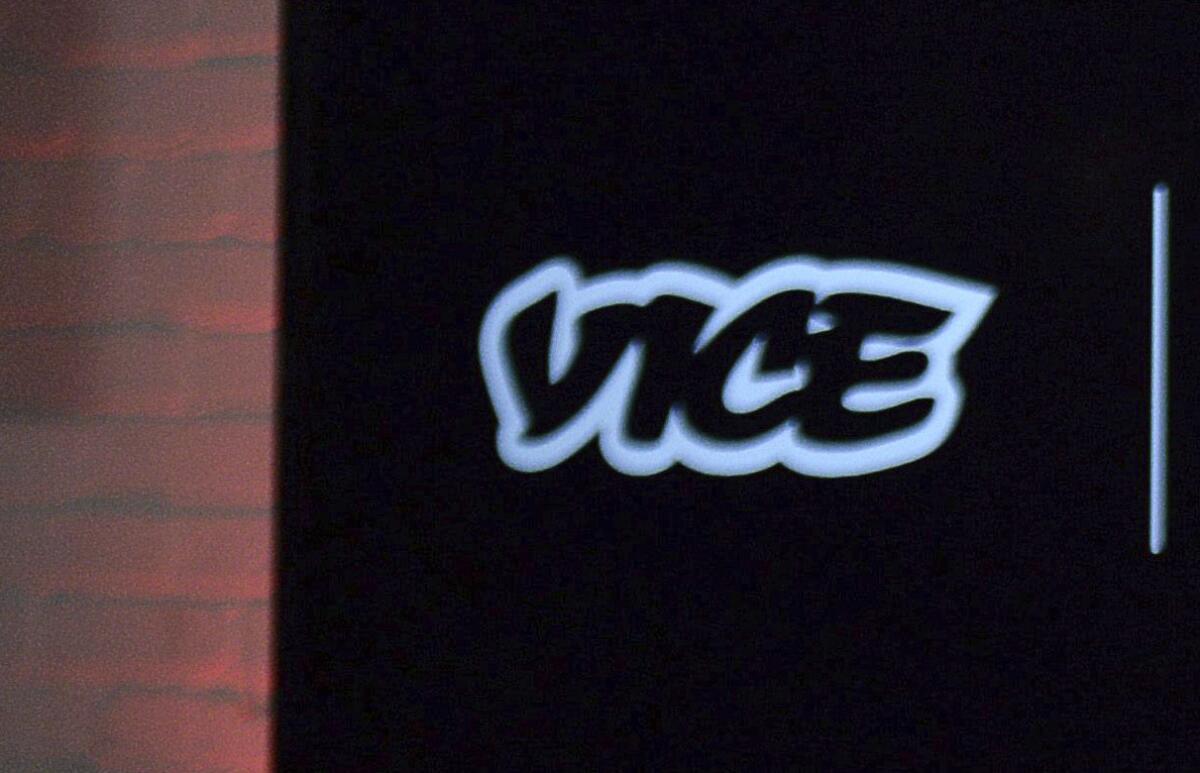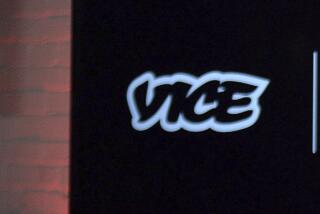Vice buys Refinery29, creating a $4-billion digital publishing group

NEW YORK — Vice Media has agreed to buy Refinery29 in a mostly stock transaction that values the online publishers at a combined $4 billion, people familiar with the matter say.
The deal between Vice, which is known for its edgy reporting and has a majority male audience, and Refinery29, an online publisher catering to millennial women, unites two of the biggest names from the early years of new media.
The companies are among a generation of start-ups that pulled in venture capital funding but then saw growth stall as the advertising climate collapsed.
Many analysts see further consolidation in the sector as inevitable. The agreement follows Vox’s acquisition last week of New York Media, the company behind New York magazine and websites including Vulture and the Cut.
“There were a couple of other ideas floated” as acquisitions, said Nancy Dubuc, who last year replaced Vice founder Shane Smith as chief executive. She said Refinery29 was the right brand and cultural fit, with a young, mostly female audience that she expects to attract advertisers. “As other parts of the sector consolidate, I think we have to march in long step.”
Vice is pushing for scale as it looks to woo advertisers with larger audiences. It declined to comment on financial terms of the Refinery29 purchase but said the deal would boost its online reach 17% to 350 million unique visitors a month, while diversifying its 60% male audience.
The acquisition comes as Vice — along with BuzzFeed, Vox and other digital publishers — fight for revenue while behemoths Facebook and Google swallow up online advertising spending.
Last year, BuzzFeed CEO Jonah Peretti raised the idea of merging digital media companies to better compete with technology giants. He described Vice, Refinery29, Vox Media and Group Nine as companies “doing interesting work.”
Vice is more diversified than its peers, having reduced its reliance on digital advertising years ago when it expanded into TV through deals with HBO and international broadcasters. It has also built out an in-house advertising agency and pushed into video, selling documentaries and feature films to Netflix and Amazon.
Investors such as Walt Disney Co. and TPG poured money into the group, with TPG’s 2017 investment valuing it at $5.7 billion.
But Vice has not been immune to the sector’s woes. The company missed its revenue targets in 2017, and Disney has repeatedly written down the value of its $400-million investment.
Dubuc, an experienced television executive, has quickly put her stamp on the company.
In February she cut about 250 jobs, 10% of Vice’s workforce, and trimmed its stable of websites.
A few months later, Vice raised $250 million in debt, including from billionaire George Soros’ investment fund. The money helped fuel investments in Vice’s faster-growing businesses such as the advertising agency Virtue and Vice Studios, which makes movies and shows to sell to third parties.
These moves have already borne fruit: Revenue in the second quarter was up 14% from the same quarter last year, according to the company.
As part of a strategy to make Vice profitable, Dubuc is focusing on international growth. Vice generates half of its revenue and draws 60% of its audience from outside the United States. Dubuc said the company was on track to reach profitability by early 2020.
Vice’s relationship with HBO ended recently, but last week it unveiled a new contract to produce documentaries for Showtime. The company says it has more than 110 projects in development worldwide.
Refinery29, founded in 2005 as a guide to New York’s independent fashion shops, has evolved into a wide-ranging online publisher aimed at millennial women. The company’s original co-founders and co-CEOs — Philippe von Borries and Justin Stefano — are to stay on and report directly to Dubuc.
© The Financial Times Limited 2019. All Rights Reserved. FT and Financial Times are trademarks of the Financial Times Ltd. Not to be redistributed, copied or modified in any way.
More to Read
Inside the business of entertainment
The Wide Shot brings you news, analysis and insights on everything from streaming wars to production — and what it all means for the future.
You may occasionally receive promotional content from the Los Angeles Times.










